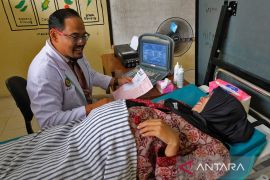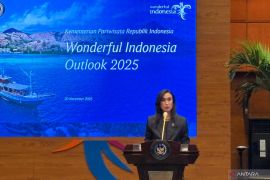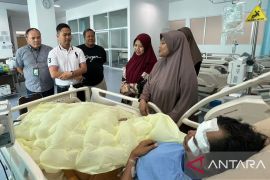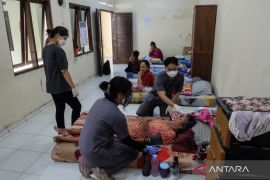"Breast milk contains antibodies that can help fight infections and prevent non-communicable diseases in adulthood. The risk of obesity or diseases caused by obesity such as diabetes can decrease if the baby consumes breast milk," director general of public health at the ministry, Maria Endang Sumiwi, said in Jakarta on Tuesday.
If a baby is not breastfed, it will be at increased risk of infection and nutritional problems in the future, she added.
"Breast milk has the most complete nutrition for babies. Babies without breast milk are at risk of developing allergies and lactose intolerance," Sumiwi said.
She also outlined several principles of infant and child feeding, especially in the first 1,000 days of life (0–24 months), with the first principle being the early initiation of breastfeeding because that determines the success of breastfeeding in the future.
"When a baby is born, the baby must be placed directly on the mother's chest to look for the nipple and immediately develop a good sucking reflex. So, it needs to be placed on the mother's chest for at least an hour. This first experience contributes to the success of exclusive breastfeeding," she informed.
Related news: Ministry records upward trend in exclusive breastfeeding
Sumiwi also emphasized that in the first 6 months, exclusive breastfeeding is very important, and babies do not need to be given other things, including water, because they get sufficient nutrition from breast milk alone.
"Exclusive breastfeeding can be effective if it lasts for 6 months," she said.
She also noted that some mothers feel worried when the breastmilk does not come out. According to her, this is normal and all mothers have the ability to produce breast milk according to their baby's needs.
"After giving birth, the mother's body is already preparing to breastfeed. So the composition of hormones in the mother's body is actually ready for breastfeeding. The baby can also wait up to 48 hours to receive breast milk. However, the success of breastfeeding is also determined by position, placement, and frequency," Sumiwi disclosed.
She further said that other family members are also responsible for maintaining proper milk production and ensuring the quality of breast milk.
"This is not only the mother's job, but all of the family members to provide support. The role of the family at home is important to support the mother in getting proper sleep and making sure she is in good psychological condition that could affect milk production," she added.
Related news: Adjust birth spacing to support exclusive breastfeeding: BKKBN
Translator: Lintang Budiyanti P, Resinta S
Editor: Yuni Arisandy Sinaga
Copyright © ANTARA 2023












